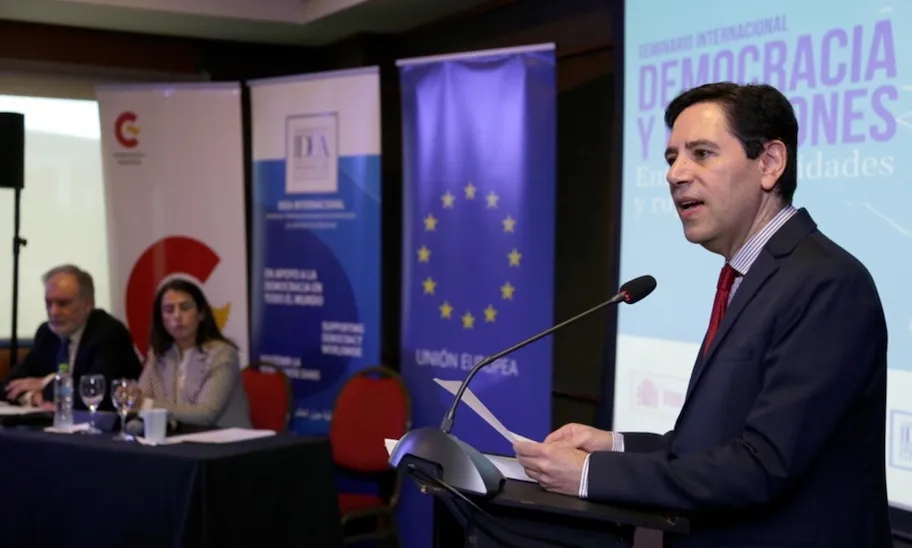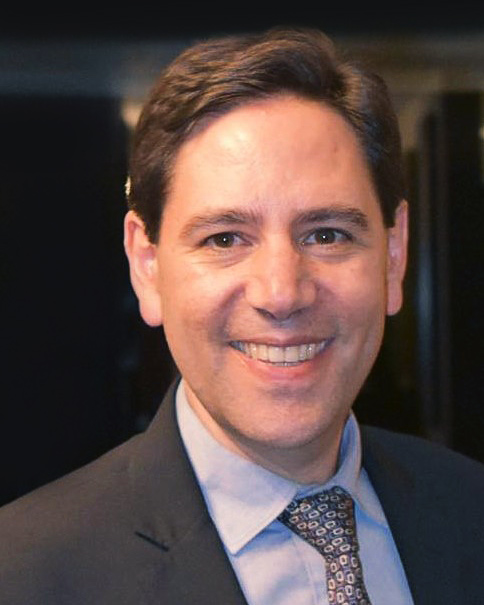Reflections on democracy in the LAC region and the elections in Paraguay

Paraguay recently hosted the international seminar "Democracy and Elections, between Continuities and Ruptures", organized by International IDEA, with support from AECID and the European Union. The event brought together a diversity of political and social actors. The result of the 2023 voting, the electoral system, the financing of politics, and women's participation and political representation were some of the topics analyzed, with national and international presentations that will be compiled in a book.
Ver artículo en español.
What is the balance of the past elections regarding the integrity of the electoral processes? What are the reflections left by the electoral participation and citizen involvement levels? What is the evaluation of the new political financing framework? What are the implications of unlocking lists and preferential voting? This and other questions were addressed at the International Seminar "Democracy and Elections, between Continuities and Ruptures", organized by International IDEA, with the support of AECID and the European Union, held on June 20 and 21 at the Sheraton Hotel in Asunción, Paraguay.
"The 2023 election represented continuity for Paraguay's asymmetric bipartisanship, which faced challenges from emerging third political forces that struggle to consolidate. The ANR obtained a vote tally in line with its historical average, while the coalition was far from its previous results. National Crusade made a strong debut, but not at an unprecedented level for a third political party. The voting results show patterns of territorial homogeneity, indicating the absence or weakness of marked regional or social antagonisms", was the contextual analysis of Salvador Romero Ballivián, director of the Paraguay Program at International IDEA.
"There was an increase in the representation of women in the Elections of April 30. In the Senate, it went from 17.7 to 24.4%, in Deputies from 15 to 22.5% and in the Departmental Boards from 20 to 27,2. Considering that the starting point has not exceeded 20%, among the lowest in the region, this is a significant growth. The interpretation of this result must consider contextual factors such as the ten years of the parity debate as a permanent democratic principle and the effects of the training programs of the TSJE, the Senate and others promoted by civil society. It is premature to regard it as an effect of preference", analyzed Carmen Echauri, Paraguay Program Officer at International IDEA.
"The party system maintains its stability over time, despite the continuous changes occurring in the Paraguayan political context. As a product of these continuous changes that impacted the party system, the two-party system, characteristic of the Paraguayan system, has had nuances throughout the democratic process, starting from the hegemonic scenario of the ANR at the beginning of the transition, later moving on to a moderate multi-party system. in the mid-2000s, to return in the last ten years to bipartisanship with a predominant party", concluded Camilo Filártiga, Program Officer of International IDEA Paraguay.
Lessons for democracy
During the two days, electoral magistracies, specialists in the matter, both national and international, and academics and civil society organizations, among others, participated. They concluded that the compliance and impact of common principles and standards in Latin America should be deepened to protect democracy, the rule of law and human rights, and women's political participation and representation.
"After the elections, it is time to draw lessons and promote reforms so that institutions and civil society are in even better conditions to go through a free, objective, transparent and civic electoral process," said Carmen Castiella Ruiz de Velasco, Ambassador of the Agency Spanish International Cooperation for Development, AECID.
On the challenges to democracy in Latin America, Javier García de Viedma, Ambassador of the European Union, pointed out: "There are many places where you vote, and there is no democracy. Democracy is fragile and must be nurtured like a delicate plant since it is an exception in the history of humanity so that it is not cut back".
In his speech, Carlos Mesa, Former President of Bolivia, commented: "Democracy is a universal, sustainable, desirable and central value for the construction of a better society, but it is an ornament if it is not representative." "The highest levels of women's political participation occur in countries that have parity. The Paraguayan case is relevant, to the extent that there is no quota, 23.5% will continue in the Legislature," said Marcela Ávila, Director of the Faculty of Political Science at the University of Querétaro.
The international seminar opened a space for informed debate on the results of the 2023 elections to generate recommendations that contribute to strengthening the electoral system, political processes, and democracy in the country. It should be noted that the presentations will later be compiled in a book published by International IDEA.




